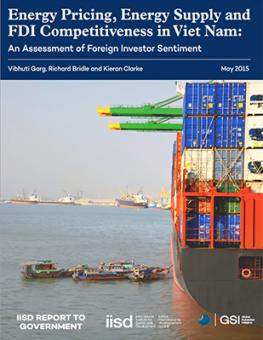
Energy Pricing, Energy Supply and FDI Competitiveness in Viet Nam: An assessment of foreign investor sentiment
Foreign direct investment (FDI) has made a major contribution to Viet Nam’s impressive structural transformation and economic growth since the 1990s.
As the country continues to pursue an ambitious development agenda, with FDI likely to play a central role in this process, it is important for policy-makers to better understand the needs and concerns of foreign businesses regarding energy supply and pricing. The satisfaction of businesses with domestic energy market conditions may be one factor in determining the ease with which Viet Nam can attract the high-quality FDI that can help deliver key developmental goals.
This report discusses the issues of energy supply and pricing issues and provides recommendations for the design of an energy policy that addresses, in particular, the concerns and interests of FDI investors in Viet Nam in this sphere.
Participating experts
You might also be interested in
The Cost of Fossil Fuel Reliance
Government support for fossil fuels reached at least USD 1.5 trillion in 2023, new data shows.
Increased Support Needed to Achieve India's Clean Energy Goals
India is on track to achieve many of its 2030 clean energy goals but needs to step up government support measures to accelerate the deployment of offshore wind, electric vehicles, and green hydrogen, according to a new report.
Why the Energy Charter Treaty Modernization Doesn't Deliver for Climate
The Energy Charter Conference adopted the "modernized" Energy Charter Treaty (ECT) on December 3, 2024. IISD's Lukas Schaugg explains what the modernization does, when it will enter into force, its tension with EU law, and why the reformed ECT can still hinder climate policies.
Ending Export Credits for Oil and Gas: How OECD countries can end 2024 with a climate win
For a year now, Organisation of Petroleum Exporting Countries (OECD) governments have been negotiating an agreement that could put an end to oil and gas export finance. Following the acrimony in Baku, this would be a very real way for the OECD to show policy coherence, respond to calls from the poorest countries to stop subsidizing fossil fuels, and shift public finance to solutions.